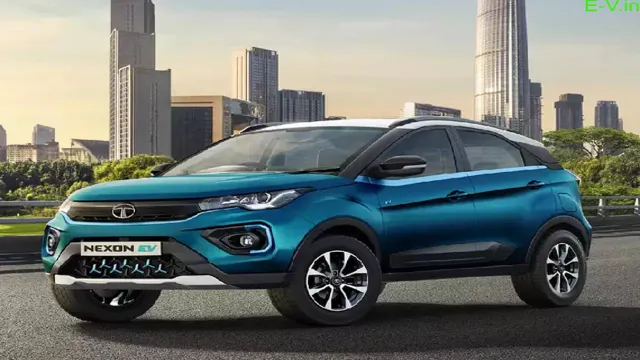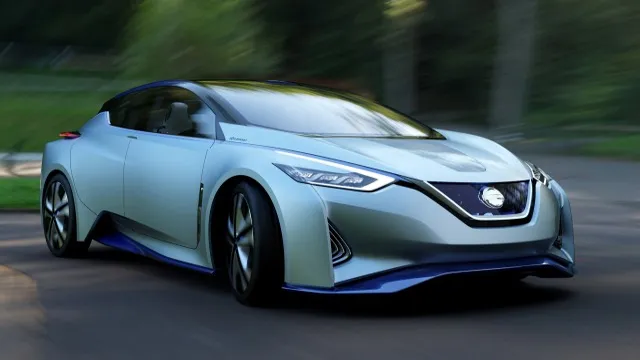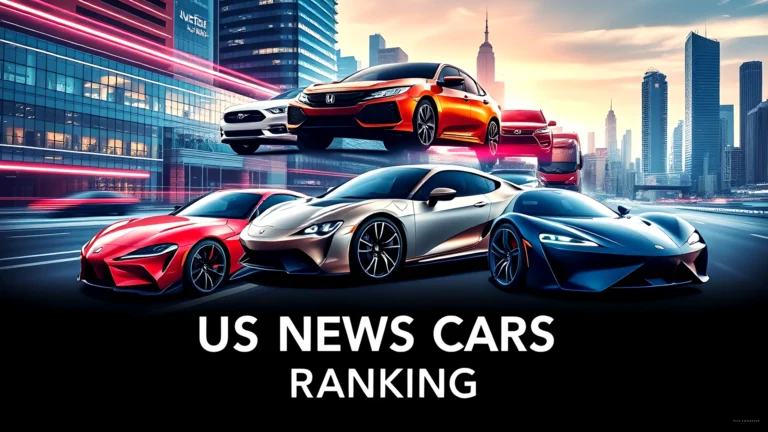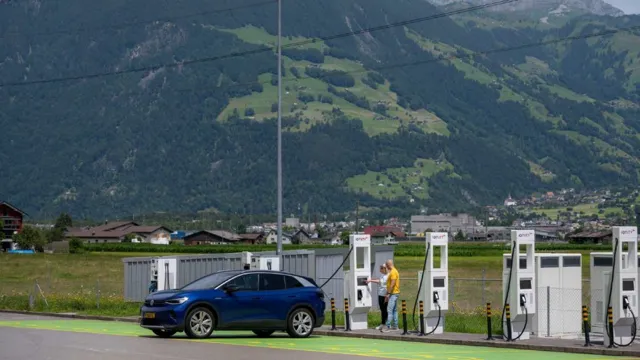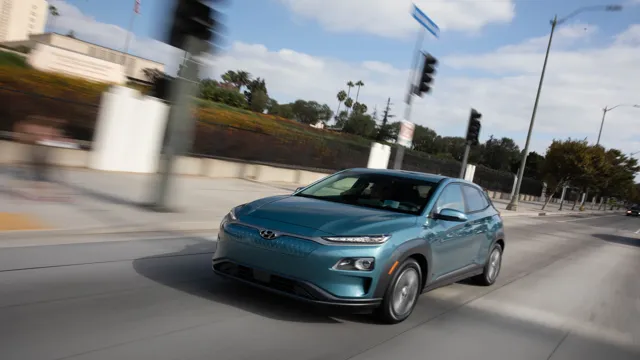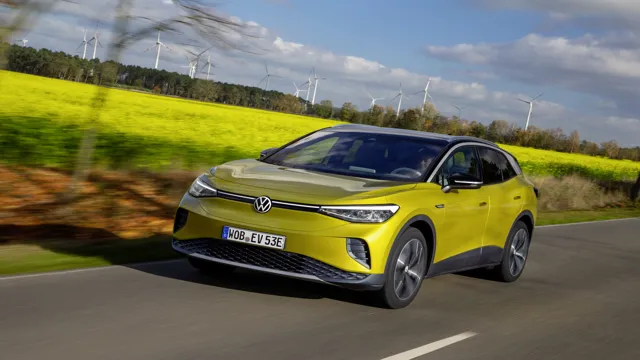Shocking Updates on Electric Cars in India – Stay Ahead of the Game!
Electric vehicles are fast becoming the future of transportation and are expected to play a significant role in curbing greenhouse gas emissions globally. In India, the government has taken numerous initiatives to promote the use of electric cars across the country in line with their aim of reducing carbon footprints and promoting sustainable development. The developments in electric cars in India are rapidly gaining momentum, and the sector is expected to attract significant investments in the coming years.
As the government continues to roll out various incentives and schemes such as subsidies, tax exemptions, and reduced GST rates, the sales figures of electric cars in India are predicted to soar. Many major automobile companies, both Indian and foreign, have also ramped up their plans to introduce their electric vehicle models in the Indian market. This investment will be a boon for the Indian automobile industry and is expected to create numerous job opportunities in the sector.
In this blog, we will keep you updated with the latest news and developments related to electric cars in India. We will cover topics such as electric car launches, government initiatives and policies, technological advancements in the sector, and the overall growth of the Indian electric car market. So, if you are interested in staying up-to-date with the latest electric car news in India, then stay tuned to our blog!
Current Status of Electric Cars in India
The electric vehicle industry is rapidly expanding globally, and India is no exception. With rising concerns about climate change, the Indian government has set the target of electrifying 30% of the country’s vehicles by 2030. Recently, various automakers such as Tata Motors, Mahindra & Mahindra, and Hyundai have introduced electric cars in India, targeting urban consumers with high disposable incomes.
Additionally, the government is also offering incentives and subsidies to encourage the adoption of electric vehicles. However, despite these efforts, the adoption rate of electric cars in India is still relatively low. The high prices of electric cars, lack of charging infrastructure in many parts of the country, and low awareness among consumers are major barriers to the growth of the electric vehicle market in India.
Nonetheless, with the continued efforts of both automakers and the government to make electric vehicles more accessible and affordable, the electric car market in India is poised for significant growth in the years to come. So, keep an eye out for electric car news in India!
Government Initiatives and Policies
As India pushes towards green mobility, electric vehicles (EVs) have gained attention from policymakers and automakers alike. The government has launched several initiatives to promote the adoption of EVs, such as the Faster Adoption and Manufacturing of Hybrid and Electric Vehicles (FAME) program and the National Electric Mobility Mission Plan. However, the current status of electric cars in India remains limited due to several challenges that need to be addressed, including high prices, range anxiety, and inadequate charging infrastructure.
Additionally, the COVID-19 pandemic has slowed down the progress of EV adoption due to supply chain disruptions and economic uncertainties. Despite these setbacks, the Indian government is committed to achieving its target of 30% electric vehicle penetration by 2030 and has announced several measures to boost the EV ecosystem, such as tax incentives, subsidies, and collaborations with international stakeholders. As electric cars become more affordable, practical, and reliable, they have the potential to revolutionize India’s transportation sector and contribute to a more sustainable future for all.
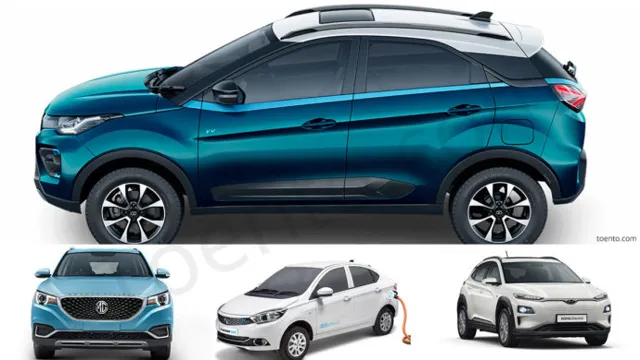
Market Overview and Growth Projections
While electric vehicles (EVs) are becoming increasingly popular worldwide, they are still in the early stages of adoption in India. The current market share for EVs in India is less than 1%, with the majority of sales coming from two-wheelers. However, the Indian government has set a target of achieving 30% electrification of vehicles on the road by 2030, which could potentially translate to millions of EVs on the road.
To help achieve this goal, the Indian government has implemented various policies, such as the Faster Adoption and Manufacturing of (Hybrid &) Electric Vehicles (FAME) scheme, which provides incentives for EV manufacturers and buyers. Additionally, big players in the Indian automotive industry, such as Tata Motors and Mahindra & Mahindra, are investing heavily in the development and production of EVs. Although there are still hurdles to overcome, such as the high cost of EVs and lack of charging infrastructure, the future for electric cars in India looks promising.
Major Players in the Indian Electric Car Industry
Electric cars in India have been gaining popularity due to many factors including government incentives, rising fuel prices, and increasing awareness of the environmental impacts of traditional gasoline vehicles. The Indian electric car industry has several major players, with Tata Motors being one of the leading manufacturers. Their electric vehicle, the Nexon EV, has been well-received by consumers and has quickly become one of the best-selling electric cars in the country.
Mahindra Electric is another major player in the Indian market and has been manufacturing electric vehicles for over a decade. The Mahindra eKUV100 is an affordable electric car that appeals to a wide range of consumers, while the Mahindra eVerito is a popular electric sedan used by taxi companies. Other notable players in the Indian electric car industry include MG Motors with their ZS EV and Hyundai with their Kona Electric.
With the demand for electric cars in India steadily increasing, more companies are expected to enter the market in the near future.
Tesla’s Entry into the Indian Market
Tesla’s entry into the Indian market is one of the most anticipated events in the country’s automotive industry. The Indian electric car industry has seen several major players in recent years, including Mahindra & Mahindra, Tata Motors, and Hyundai, among others. Mahindra & Mahindra leads the market with its flagship electric car, the e2oPlus, while Tata Motors is slowly gaining momentum with its electric offerings, such as the Tigor EV.
Hyundai’s Kona Electric has also been well-received in the Indian market. Despite the competition, Tesla’s entry into the Indian market is expected to cause disruption due to its high-quality, cutting-edge technology, and brand cachet. Tesla’s launch in India is eagerly awaited, and it is expected to bring a new dimension to the Indian electric car industry.
Introducing Tesla’s electric cars in India will encourage the adoption of renewable energy technology, boosting the country’s environmental efforts. The buzz surrounding Tesla’s arrival indicates a promising future for electric vehicles in India, and it is hoped that it will pave the way for a more environmentally conscious transportation sector.
Success Stories of Indian EV companies
The Indian electric vehicle market has been gaining tremendous momentum in recent years, and several companies have emerged as major players in the industry. One of the most successful EV companies in India is Tata Motors, which launched its first EV, the Tigor, in 201 Since then, the company has expanded its EV portfolio to include the Nexon, one of the highest-selling electric SUVs in India.
Another prominent player is Mahindra Electric, which has been manufacturing electric vehicles in India for over a decade. The company’s offerings include the e2o Plus, eKUV100, and the recently launched eXUV300. Other notable EV manufacturers in India include Hyundai, MG Motors, and Renault.
Despite the challenges posed by the pandemic, these companies continue to innovate and offer affordable electric vehicles to the Indian market, contributing towards a cleaner and greener future.
Upcoming Electric Car Launches in India
India’s transition to electric mobility is in full swing, with dozens of new electric cars set to hit the market in the coming years. Major players in the Indian electric car industry include Tata Motors, Mahindra & Mahindra, and Hyundai. Tata Motors is set to launch the Nexon EV, which is expected to be one of the most affordable electric SUVs in India.
On the other hand, Mahindra & Mahindra is set to launch the eKUV100, which is aimed at the mass-market segment and is expected to be priced competitively. In addition, Hyundai is set to launch the Kona Electric, which is expected to be one of the most expensive electric cars in India. With more and more automakers introducing electric cars, India’s electric car market is expected to grow exponentially in the coming years.
Challenges and Opportunities for Electric Cars in India
Electric cars in India have faced several challenges and opportunities in recent times. On one hand, the government has offered a substantial subsidy for electric cars through the FAME II scheme, which aimed to promote cleaner modes of transportation. On the other hand, electric cars in India face a significant amount of skepticism from buyers due to issues related to infrastructure, range anxiety, and high initial costs.
However, companies like Tata, Mahindra, and MG are driving the electric vehicle revolution by introducing affordable and practical electric cars to the market. The future looks promising for electric cars in India, as the government has set an ambitious target of 30% of total vehicles to be electric by 2030. However, the government needs to work towards improving charging infrastructure and battery technology to accelerate adoption.
In recent news, India’s largest car manufacturer, Maruti Suzuki, has announced that it will launch its first electric car in 202 This move by Maruti Suzuki is significant as it currently holds more than 50% of the market share in the Indian automotive industry. This announcement is a clear indication that even the market leader is betting big on electric cars and believes that the future of the automotive industry is electric.
Furthermore, the Indian government is also planning to mandate all government-owned vehicles to transition to electric by 2030. This will spark growth in the electric vehicle ecosystem in India, making charging infrastructure more accessible and promoting collaboration between industry players and the government. In conclusion, while there are challenges, the electric car market in India has enormous potential and is poised to grow in the coming years.
Infrastructure Challenges and Solutions
Electric cars are becoming increasingly popular in India as people look for more environmentally friendly transportation options. However, one of the biggest challenges facing electric cars in India is the lack of infrastructure to support them. There are currently very few charging stations available, which can make it difficult for drivers to find a convenient place to recharge their vehicles.
This can be a major deterrent for potential electric car buyers, as range anxiety is a common concern. Additionally, India’s power grid infrastructure is not yet equipped to handle the increased demand from electric vehicles. Despite these challenges, there are also opportunities for electric cars in India.
The government has taken steps to incentivize the adoption of electric vehicles, offering subsidies and tax breaks to buyers. This can help to offset some of the costs of purchasing an electric car. Additionally, companies are investing in building charging infrastructure, with plans to install thousands of charging stations across the country.
This will help to alleviate range anxiety and make electric cars a more practical option for drivers. In conclusion, while electric cars face infrastructure challenges in India, there are also opportunities for growth and development. As the government and private sector work together to build up the necessary infrastructure, electric cars have the potential to become a viable and sustainable mode of transportation in India.
Battery Technology and Innovation
Electric Cars in India India is one of the largest vehicle markets in the world, and with rising concerns over environmental pollution, electric cars are gaining popularity in the country. However, there are several challenges that need to be addressed for electric cars to become a mainstream option in India. One of the primary challenges is the lack of charging infrastructure and the unreliability of the existing infrastructure.
Additionally, the cost of batteries and the limited range of electric cars are also barriers for many consumers. However, there are also opportunities for innovation and growth in the electric car market in India. For instance, companies can focus on developing affordable and efficient batteries, as well as expanding the charging network across the country.
With the right investments and policies, the electric car market in India has the potential to become a major player in the global automotive industry.
Conclusion and Future Outlook
In conclusion, the news about electric cars in India is electrifying! With the government offering incentives and subsidies, the rise of affordable EV models, and the growing awareness about the importance of sustainable transportation, the future looks bright for India’s electric car market. From buzzing around the city in a compact EV to cruising down the highways in a luxurious Tesla, Indian drivers are ready to ditch fossil fuels and embrace the power of electricity. So get ready to charge up your ride and join the green revolution, because when it comes to electric cars in India, the sparks are flying!”
FAQs
What is the current status of the electric car market in India?
The electric car market in India is growing steadily with increasing government support and investments from private companies.
How has the Indian government supported the growth of electric cars in the country?
The government has launched various schemes and incentives, such as the Faster Adoption and Manufacturing of Hybrid and Electric Vehicles (FAME) program and reduced Goods and Services Tax (GST) rates on electric vehicles.
Which electric car models are available in India currently?
Some of the popular electric car models available in India are the Tata Nexon EV, MG ZS EV, Hyundai Kona Electric, and Mahindra e-Verito.
Is the infrastructure for electric cars well-developed in India?
Although there is room for improvement, the infrastructure for electric cars in India is developing rapidly with increasing numbers of charging stations and government initiatives for setting up more infrastructure.
